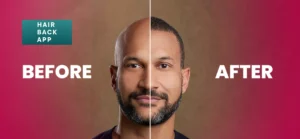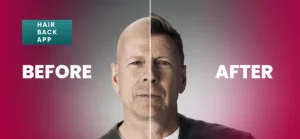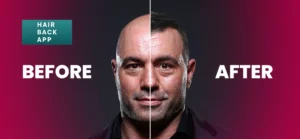Hair transplant legal ethical issues are an important consideration for anyone involved in the field of hair restoration, from practitioners to patients.
My name is Emma Wright, your resident hair transplant and hair restoration specialist. Today we’ll tak a look at Hair transplant legal and ethical issues. As with any medical procedure, there are numerous legal and ethical concerns that need to be addressed to ensure patient safety and uphold professional standards.
These concerns include regulatory frameworks, patient rights, informed consent, medical malpractice, and ethical dilemmas, all of which play a critical role in hair transplantation procedures.
Regulatory Frameworks and Standards
When it comes to hair transplant legal ethical issues, regulatory frameworks and standards are the foundation of safe practice. Hair transplant clinics and professionals are required to adhere to strict regulations that govern the qualifications of practitioners, the safety of the procedure, and the rights of patients.
These regulations help ensure that hair transplants are performed by trained professionals who follow industry standards, minimizing the risk of complications.
Hair transplant legal ethical issues also extend to the licensing of medical professionals. In many regions, hair transplantation can only be performed by certified and licensed practitioners. This ensures that those performing the surgery have undergone proper training and education to handle the complexities of the procedure.
Informed Consent and Patient Rights
Among the most important hair transplant legal ethical issues is obtaining informed consent. Informed consent ensures that patients are fully aware of the procedure, including the risks, benefits, alternatives, and possible outcomes. This process protects both the patient and the medical professional by ensuring that the patient makes an informed decision about undergoing the procedure.
Key elements of informed consent, such as full disclosure, patient understanding, and voluntariness, are crucial to addressing hair transplant legal ethical issues. Without proper consent, patients may later claim they were not informed about the risks or outcomes, leading to legal disputes.
Patients should also have the right to refuse or withdraw consent at any time. Ethical practice dictates that medical professionals must respect this right, which is a critical part of hair transplant legal ethical issues.

Medical Malpractice and Liability
Medical malpractice is one of the most serious hair transplant legal ethical issues. Malpractice occurs when a healthcare provider deviates from the accepted standard of care, leading to harm or injury to the patient. In hair transplantation, this could happen due to negligence, unqualified practitioners, or improper aftercare.
One of the most common hair transplant legal ethical issues related to malpractice is the failure to deliver satisfactory results. If a patient experiences scarring, infection, or poor aesthetic outcomes, they may pursue legal action. Medical professionals must ensure they perform procedures with the highest level of care to avoid such legal and ethical pitfalls.
Additionally, the hair transplant role of donor quality is a critical factor that directly affects the outcome of a hair transplant. If the donor hair is not healthy or of good quality, the results may not meet the patient’s expectations.
Moreover, factors like diet and hair transplant success play a significant role in the overall outcome. Proper nutrition before and after the surgery can significantly influence the healing process and the final results of the transplant. Patients should be informed that adopting a healthy diet is an essential component of ensuring a successful hair transplant.
External influences, such as environmental factors on hair health, can also impact the effectiveness of a hair transplant. Conditions like pollution, exposure to harsh weather, and water quality can affect the health of the hair post-surgery. Clinics need to advise patients on how to protect their hair from these environmental factors to ensure the longevity of the transplant results.
Another trend that has had a significant impact on the hair transplant industry is celebrity hair transplant trends. Many patients are influenced by the choices made by celebrities, often seeking similar treatments without fully understanding the unique requirements and risks associated with their own cases. It’s essential for practitioners to manage these expectations and provide realistic advice, rather than encouraging patients to follow trends blindly.
Ethical Dilemmas in Hair Transplantation
While legal issues are a significant concern, hair transplant legal ethical issues also encompass ethical dilemmas faced by practitioners. One of the biggest challenges is managing patient expectations. Many patients come into the process with unrealistic hopes for their results, often driven by personal insecurities or societal pressure.
Medical professionals are ethically obligated to address these hair transplant legal ethical issues by providing honest and clear communication. Over-promising results or providing false hope can lead to dissatisfaction and further legal complications.
Another significant ethical concern in hair transplantation is the issue of patients with body dysmorphic disorder (BDD). Patients with BDD may pursue unnecessary cosmetic procedures, which can worsen their mental health. In such cases, addressing hair transplant legal ethical issues involves screening patients for psychological concerns and advising them accordingly, rather than performing the procedure irresponsibly.
Financial Exploitation and Over-commercialization
Hair transplant legal ethical issues also involve concerns around financial exploitation. Hair transplantation can be a lucrative business, leading some clinics to prioritize profit over patient welfare. Clinics may charge exorbitant fees for procedures, sometimes exploiting vulnerable individuals who feel desperate to restore their hair.
To address these hair transplant legal ethical issues, clinics should practice fair pricing and provide transparent communication about the costs involved. Ethical marketing is equally important—advertisements should accurately represent the potential outcomes of the procedure, avoiding exaggerated claims that mislead patients.
Conclusion
Hair transplant legal ethical issues are central to ensuring that hair transplant procedures are performed safely and ethically.
From regulatory frameworks and informed consent to managing patient expectations and avoiding malpractice, medical professionals must navigate these complex issues to provide the best care for their patients.
By addressing hair transplant legal ethical issues, the field of hair transplantation can continue to grow while maintaining the highest standards of patient safety and professional integrity.
Additionally, considering the hair transplant role of donor quality, diet and hair transplant success, environmental factors on hair health, and the influence of celebrity hair transplant trends, the industry can ensure that both legal and ethical standards are upheld in every aspect of the procedure.














